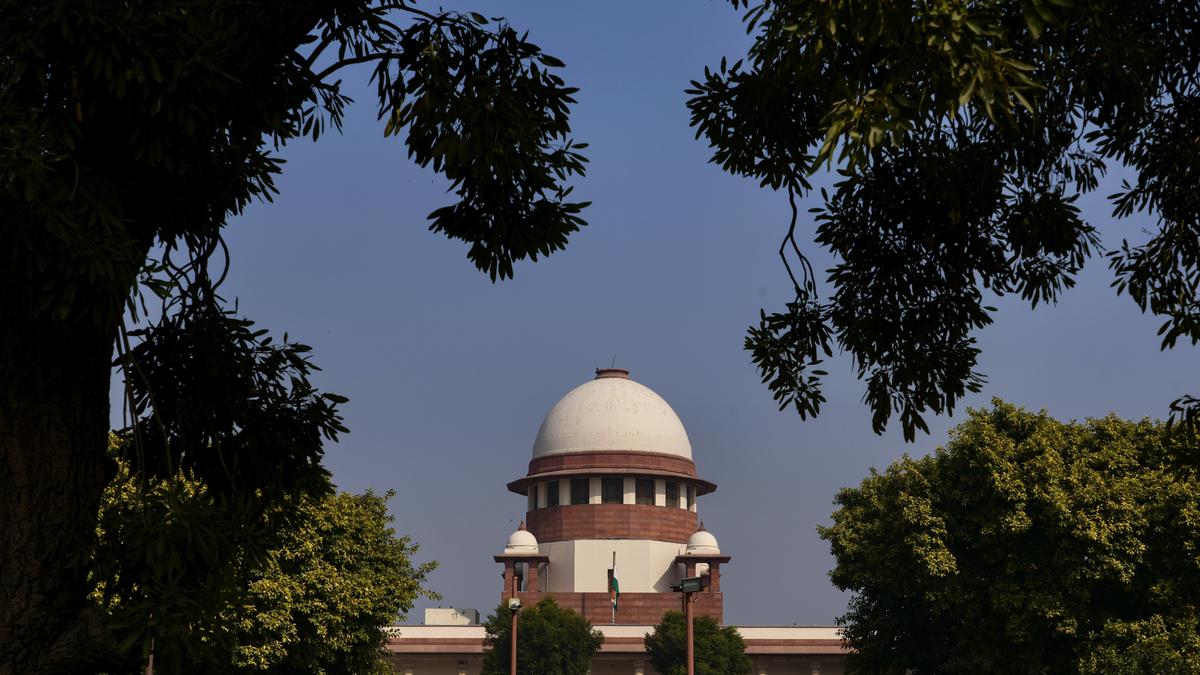
Supreme Court’s ruling on immunity for legislators facing bribery charges | Explained
The Hindu
We decode the Supreme Court judgement holding that MPs and MLAs are not immune from prosecution for accepting bribes, overruling the precedent in P.V Narasimha Rao vs. State
The story so far: In a landmark judgment, the Supreme Court on Monday ruled that Members of Parliament (MPs) and Members of Legislative Assemblies (MLAs) cannot claim any immunity from prosecution for accepting bribes to cast a vote or make a speech in the House in a particular fashion. Article 105(2) of the Indian Constitution confers on MPs immunity from prosecution in respect of anything said or any vote given in Parliament or on any parliamentary committee. Similarly, Article 194(2) grants protection to MLAs.
A seven-judge Constitution Bench headed by Chief Justice of India (CJI) D.Y. Chandrachud unanimously overruled its 1998 judgment in P.V Narasimha Rao v. State and opened the doors for law enforcement agencies to initiate prosecution against legislators in bribery cases under the Prevention of Corruption Act, 1988.
Read the verdict here.
Sita Soren, a member of the Jharkhand Mukti Morcha (JMM), was accused of accepting a bribe to cast her vote in favour of a certain candidate in the Rajya Sabha elections of 2012. Soon, the Central Bureau of Investigation (CBI) filed a chargesheet against her. In 2014, the Jharkhand High Court dismissed Ms. Soren’s plea seeking quashing of the criminal proceedings against her. In the plea, she had claimed she enjoyed legal immunity under Article 194(2). The dismissal in High Court led to an appeal being filed in the Supreme Court.
A three-judge bench headed by then CJI Ranjan Gogoi while hearing the appeal in March 2019 noted that the decision in P.V. Narasimha Rao dealt directly with the case. Considering that the case had been decided by a narrow margin (a 3:2 split among the five judges), it was referred to a larger bench underscoring that the case was of “substantial public importance.” The issue framed for reference was — whether Article 105/194 (2) of the Constitution of India conferred any immunity on the Members of Parliament/Legislative Assembly from being prosecuted for an offence involving offer or acceptance of bribe to caste vote in a legislature?
Also Read: What are the three cases before the new CJI-led Constitution Bench? | Explained
The P.V. Narasimha Rao ruling involves the 1993 JMM bribery case against JMM chief and former Union Minister Shibu Soren, the father-in-law of Sita Soren, the petitioner in the present case. Mr. Soren, along with some of his party members, were accused of taking bribes to vote against the no-confidence motion against the then P.V. Narasimha Rao government.

The Karnataka government has drafted a comprehensive master plan for the integrated development of Kukke Subrahmanya temple, the State’s highest revenue-generating temple managed by the Hindu Religious Institutions and Charitable Endowments Department. The redevelopment initiative is estimated to cost around ₹254 crore and aims to enhance infrastructure and facilities for devotees.












